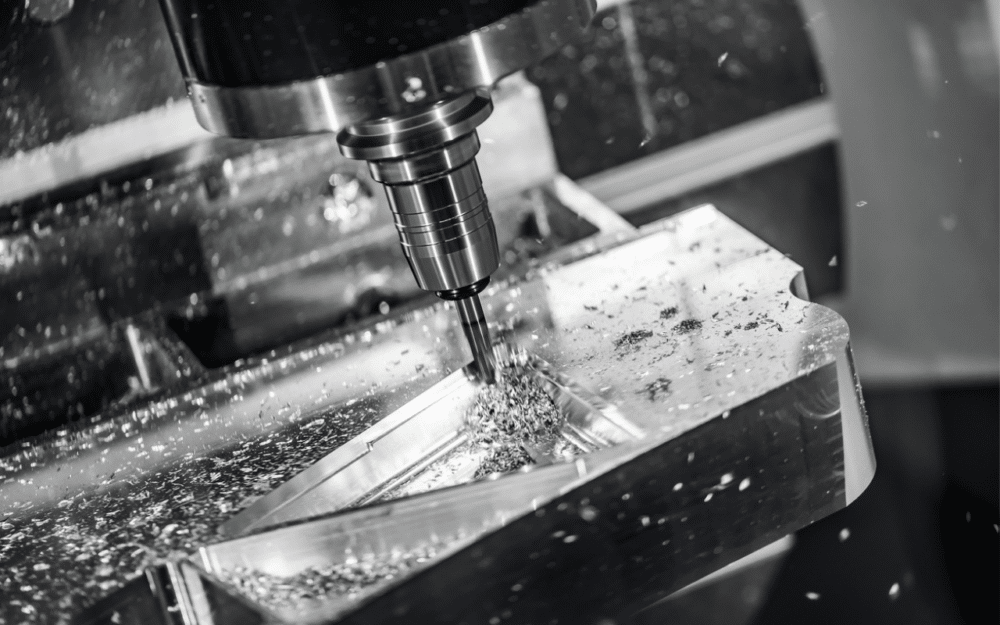According to UCIMU-SISTEMI PER PRODURRE, the association of Italian manufacturers of machine tools, robots, and automation systems, 2023 was a banner year for the Italian machine tool industry. Despite a declining domestic market, the sector reached new production heights, primarily driven by robust export performance. However, 2024 forecasts suggest a slight downturn, with a slowdown in order intake reflecting a more uncertain global and domestic environment.
A Year of Record Production Fueled by Exports
In 2023, the Italian machine tool industry set a new production record of €7.615 billion, marking a 4.6% increase over 2022. This growth is largely attributed to record-breaking exports, which surged by 21.8% to reach €4.223 billion. Major export markets included the United States, Germany, China, France, and Poland, with notable increases in countries like Turkey, Mexico, and India.
Conversely, domestic consumption fell by 7.8% to €5.816 billion, negatively impacting both Italian manufacturers, whose deliveries dropped by 11% to €3.392 billion, and imports, which decreased by 3% to €2.425 billion. The export-to-production ratio rose from 47.6% in 2022 to 55.5% in 2023, underscoring the industry’s heavy reliance on foreign markets.
Outlook for 2024: A Moderate Decline
Projections for 2024 indicate a slight decline in production to €7.450 billion (-2.2%), with exports expected to set another record at €4.350 billion (+3%). However, domestic deliveries are predicted to suffer the most, falling by 8.6% to €3.100 billion, driven by a 7.1% reduction in internal consumption to €5.405 billion. Imports are also forecasted to decrease to €2.305 billion (-4.9%).
The first half of 2024 has already shown signs of strain, with the UCIMU order intake index recording a 17.3% drop compared to the same period in the previous year. This decline reflects broader instability in both domestic and international markets.
Challenges and Recommendations
According to Barbara Colombo, who has led UCIMU-SISTEMI PER PRODURRE, there is a need for swift implementation of Transition 5.0, which focuses on integrating digital and energy-efficient technologies.
“Transition 5.0 aims to blend digital transformation with energy efficiency, while Transition 4.0 focuses solely on digital advancements. The prolonged wait for the implementation of Transition 5.0 and the lack of definitive regulatory measures have created a dual negative impact: users have delayed purchasing decisions awaiting clarity on the new measure, and the existing 4.0 measure has lost prominence despite still being in effect.”
Colombo emphasized the urgency of operationalizing Transition 5.0 to maximize its benefits. The short time frame between the measure’s availability and the deadline for machine delivery and interconnection (set for December 2025) poses challenges for Italian manufacturers, who typically have production lead times of six to eight months. Any delays in implementation risk favoring importers with readily available stock, to the detriment of local producers.
Colombo also said that the advancement of machine tool technology requires a skilled workforce capable of managing and innovating with new systems. UCIMU is committed to addressing this through the UCIMU Academy and initiatives like ROBOTGAMES, aimed at engaging and nurturing young talent in robotics and automation.
Strengthening global competitiveness is crucial. Colombo advocated for increased support from authorities for international business development, including trade missions, international trade shows, and partnerships with organizations like SACE and SIMEST. Enhancing the industry’s global footprint is essential for maintaining its competitive edge.
“We must be aware that the size of our companies and the country does not play in our favor. This is why our membership in the European Union will become increasingly important, as it will allow us to help shape programs, directives, and economic and industrial plans, provided we can be present at all levels in strategic discussions.”






![Image [Best of 2025] Power Moves in the Energy World](/wp-content/uploads/sites/3/energy-320x213.jpg)
![Image [Best of 2025] How Generative AI Is Transforming Industry](/wp-content/uploads/sites/3/AI-4-320x213.jpg)
![Image [BUYING GUIDE] How to Choose the Right Industrial Robot?](/wp-content/uploads/sites/3/Industrial-Robot-320x213.jpg)

![Image [Buying Guide] How to Choose the Right Safety Shoes?](/wp-content/uploads/sites/3/Safety-Shoes-320x213.jpg)